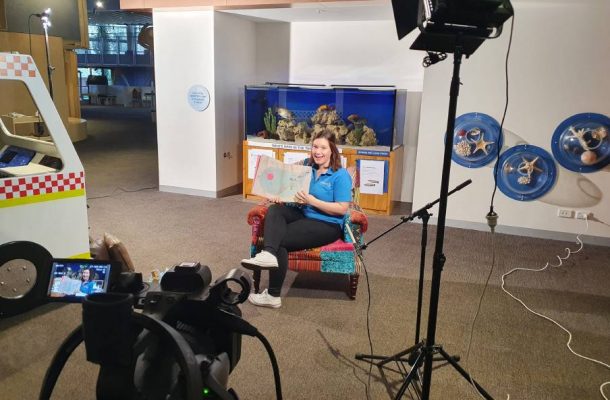Putting children and young people first

“There can be no keener revelation of a society’s soul than the way in which it treats its children.” – Nelson Mandela
As the coronavirus disease 2019 (COVID-19) pandemic has burned through society, we have focused on the needs of the most vulnerable, particularly the elderly. But the pandemic has taken a new turn, particularly with the Delta variant.
As the severe acute respiratory syndrome coronavirus 2 (SARSCoV2) mutates and spreads, our experiences are not the same as they were in the earlier phases of the pandemic. The Delta variant is highly transmissible, a formidable opponent and challenging health systems across the world.
The spread of COVID-19 is increasing among children, and in some instances, manifestations of the virus become more severe. This is of concern globally, not just in Australia. We have always known that children were sources of infection, and we have tolerated the lower disease severity but in some ways, we have been lulled into a false sense of security.
We have already been shocked by the deaths among younger people. In Australia, we have been shielded from these images to date, and this new reality is both chastening and daunting. The thought of seeing children on ventilators in intensive care units sends chills of terror down our spines.
Our current situation has put up a red flag for us to pay attention to what lies ahead. We will need to refocus on the needs of younger adults and children and the environments in which they live, work and play.
We also need to address the needs of children beyond their physical needs. While most of us have spent the pandemic glued to television screens, frustrated by lockdown, struggling with home schooling and lamenting events lost, our children and young people have also struggled, separated from their friends and borne witness to endless uncertainty, anguish and suffering.
Anyone with young children knows they are little sponges keen to absorb information and our emotions, and we cannot deny their experiences. Older children have been deprived of milestones such as end of year concerts, birthday parties and graduations. We must appreciate their losses.
Our experience of the pandemic will not be impact neutral. We must prepare for the increase in mental health issues and the learning consequences of fragmented education over an extended period.
Across the education sector, including universities, we need to be accommodating of the COVID-19 experience. For the many young people doing their HSC, I remind them and their parents that life is long and there are many pathways. Your ATAR does not define you or your possibilities.
Now is the time to be kinder to our children, their teachers and ourselves. I worry about the mental health of our young people. I was so impressed by a message from a Blacktown school principal on Twitter last week. He wrote, at the end of the pandemic, the mental health of children would be more important than their academic skills. Kids at the moment need to be comforted and loved.
Now is the time to be kinder to our children, their teachers and ourselves.
Equally, schools and universities will need to be accommodating and kind over an extended period, not just in the short term. The impact of this pandemic will be long. We hope the virus will burn out sooner rather than later but the impact on our economy and our society will likely continue across a generation, particularly amongst our most vulnerable.
This emphasises the importance of diverse strategies to promote learning in a fun way that is family focused. At the University of Wollongong, our Early Start and Science Space have responded immediately to this challenge, pivoting to online offerings that enabled them to engage with their young audiences and still deliver their fun and informative programs. We look forward to the day we can see children, their friends and families on campus.
In the meantime, we need to prepare to deal with not only the immediate foe we face, but also the consequences of this pandemic. The COVID-19 pandemic has accelerated and accentuated many trends in society – both good and bad.
Our children and young people are our future, and we need to do all we can to ensure that they lead happy, healthy, and successful lives. This does not happen by accident. This will require supporting parents, families and creating environments where children are safe and not just survive but thrive.
This article first appeared in the Illawarra Mercury and is reproduced with the author’s permission.
Professor Patricia M. Davidson joined the University of Wollongong as Vice-Chancellor in May 2021. Her work focuses on person-centred care delivery and the improvement of cardiovascular health outcomes for women and vulnerable populations.













